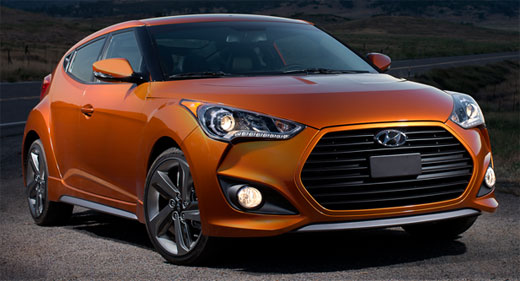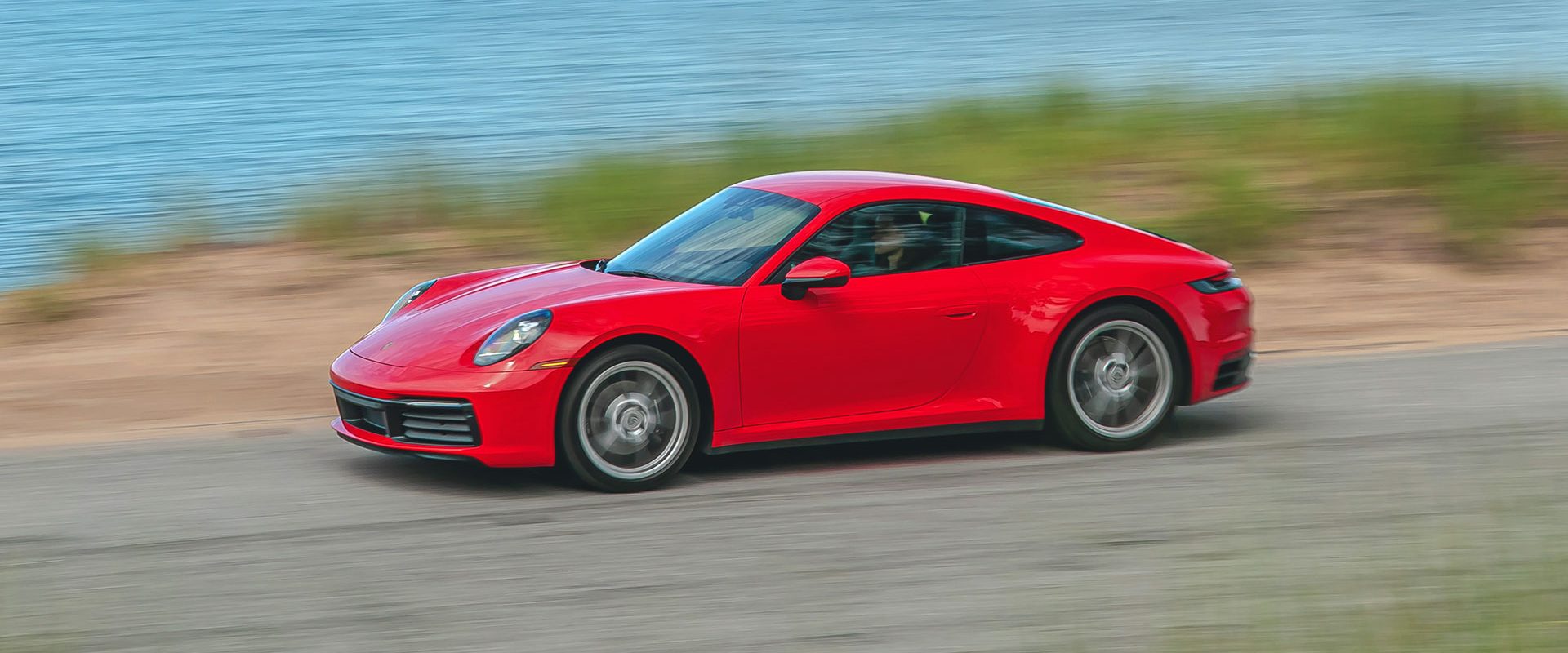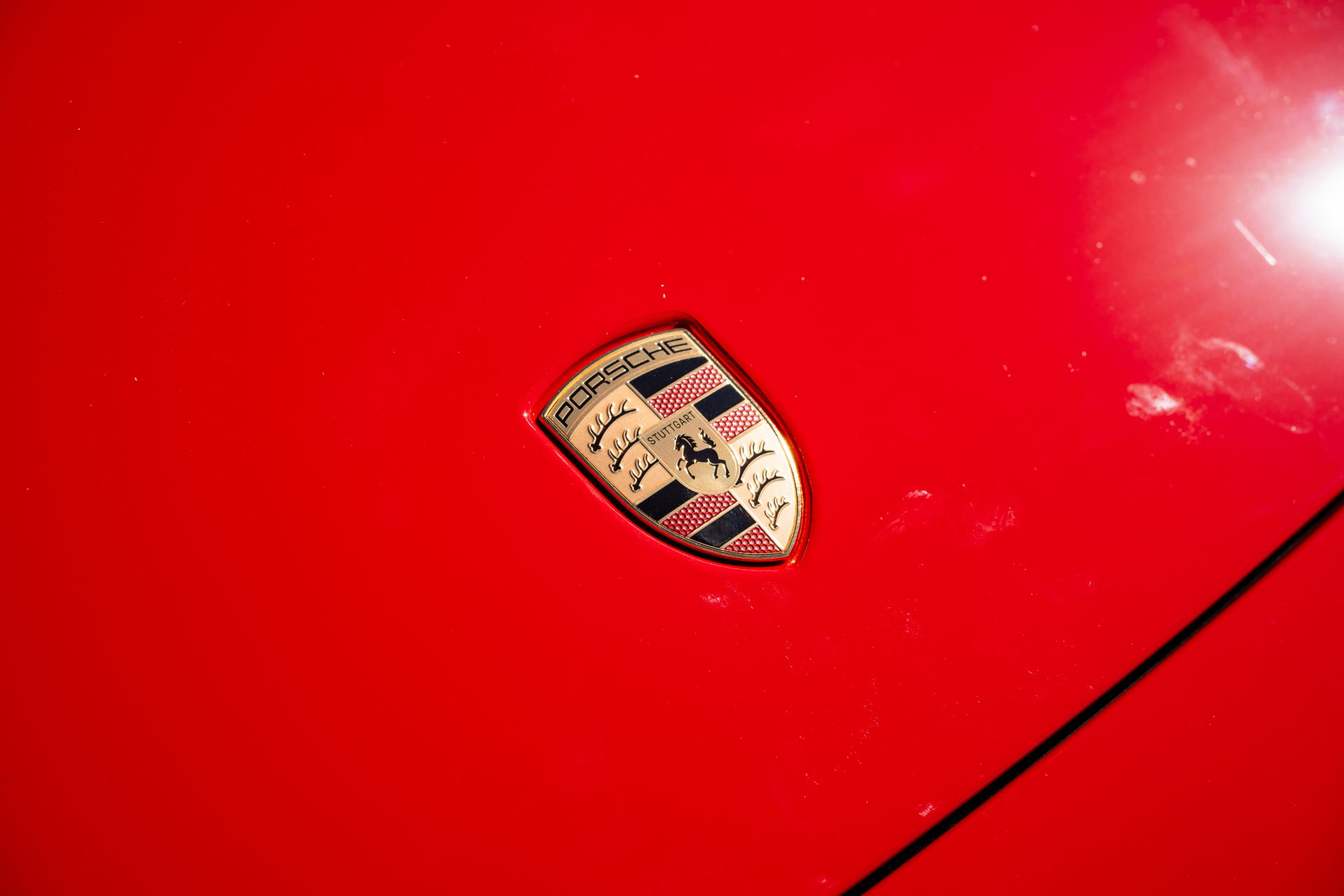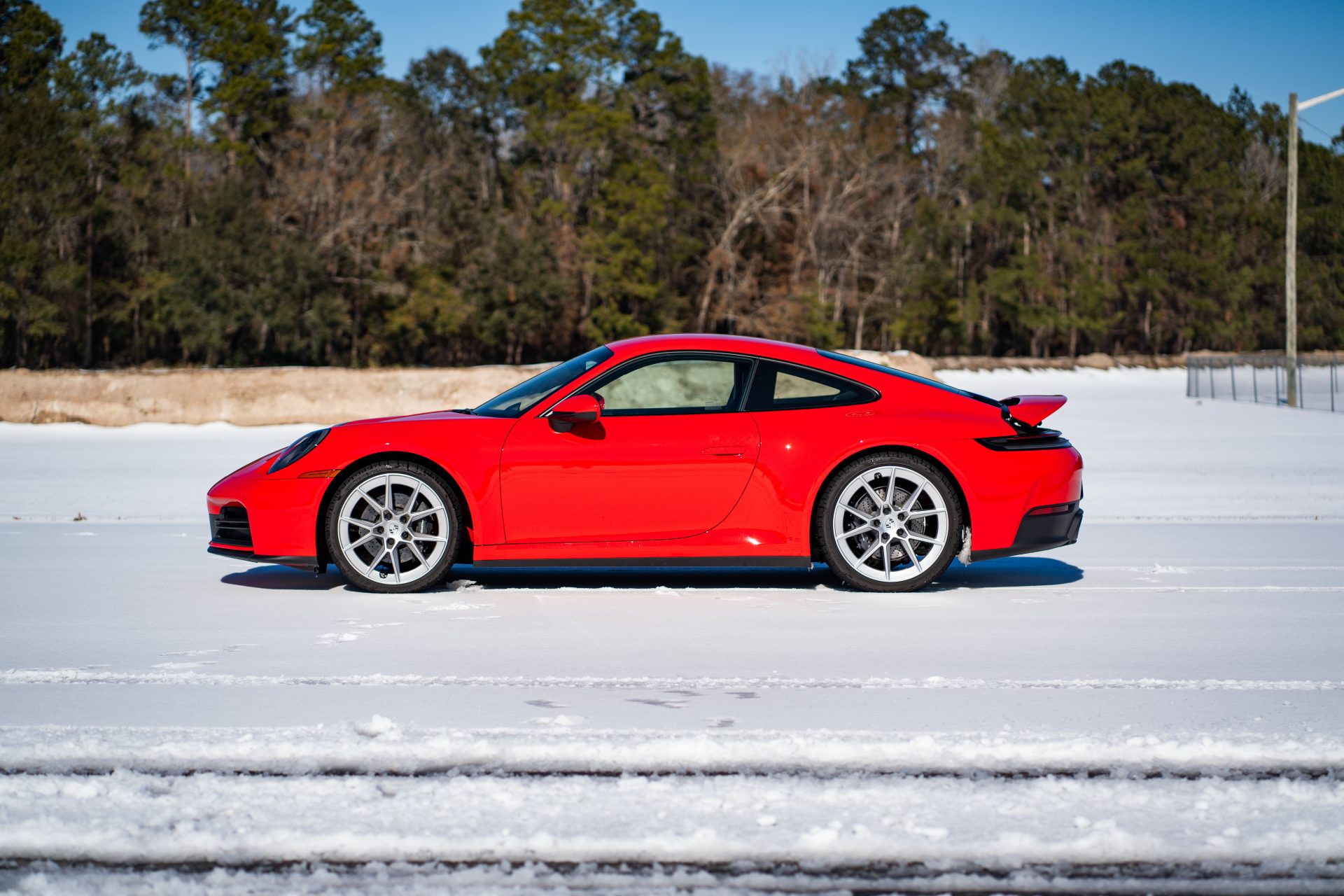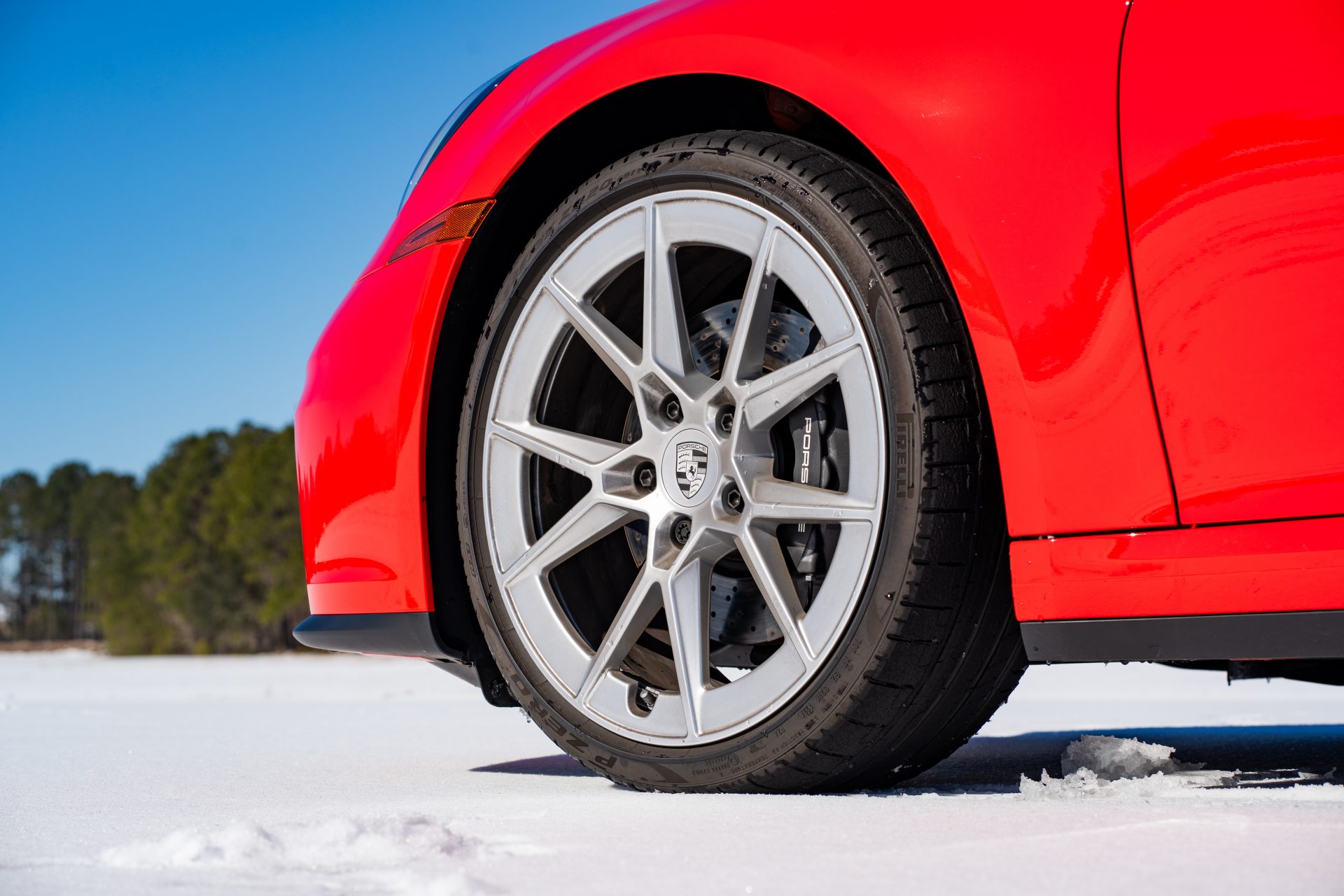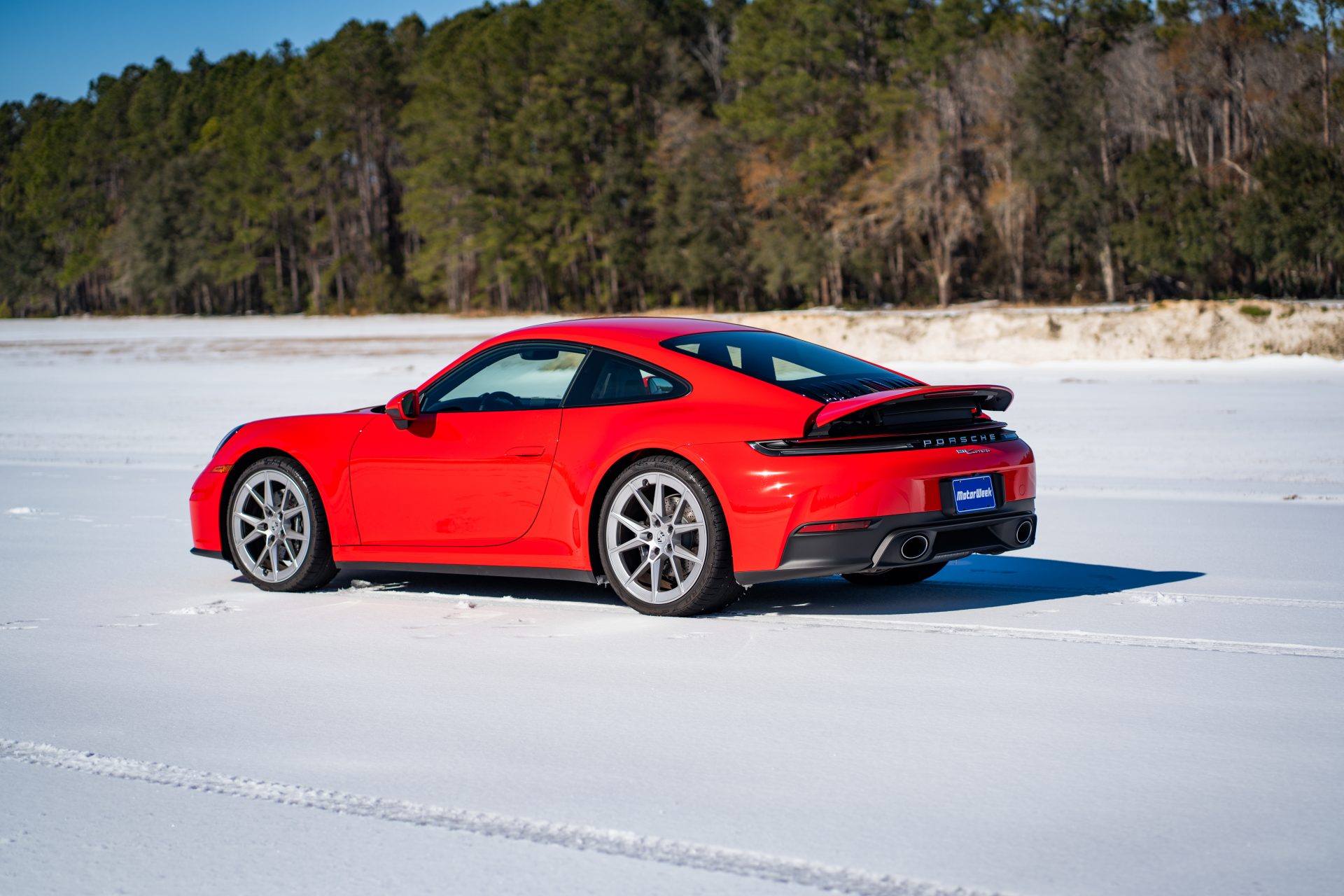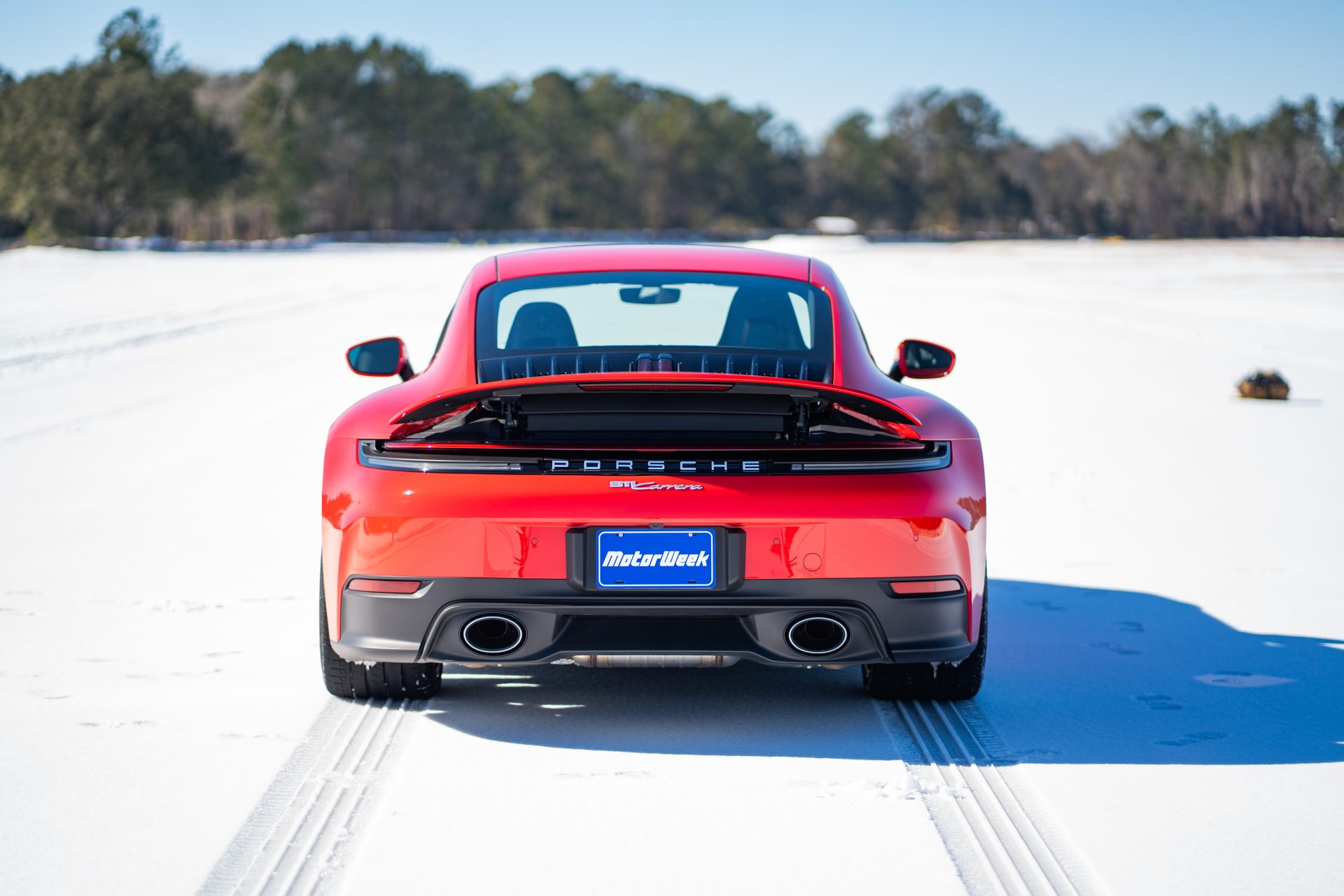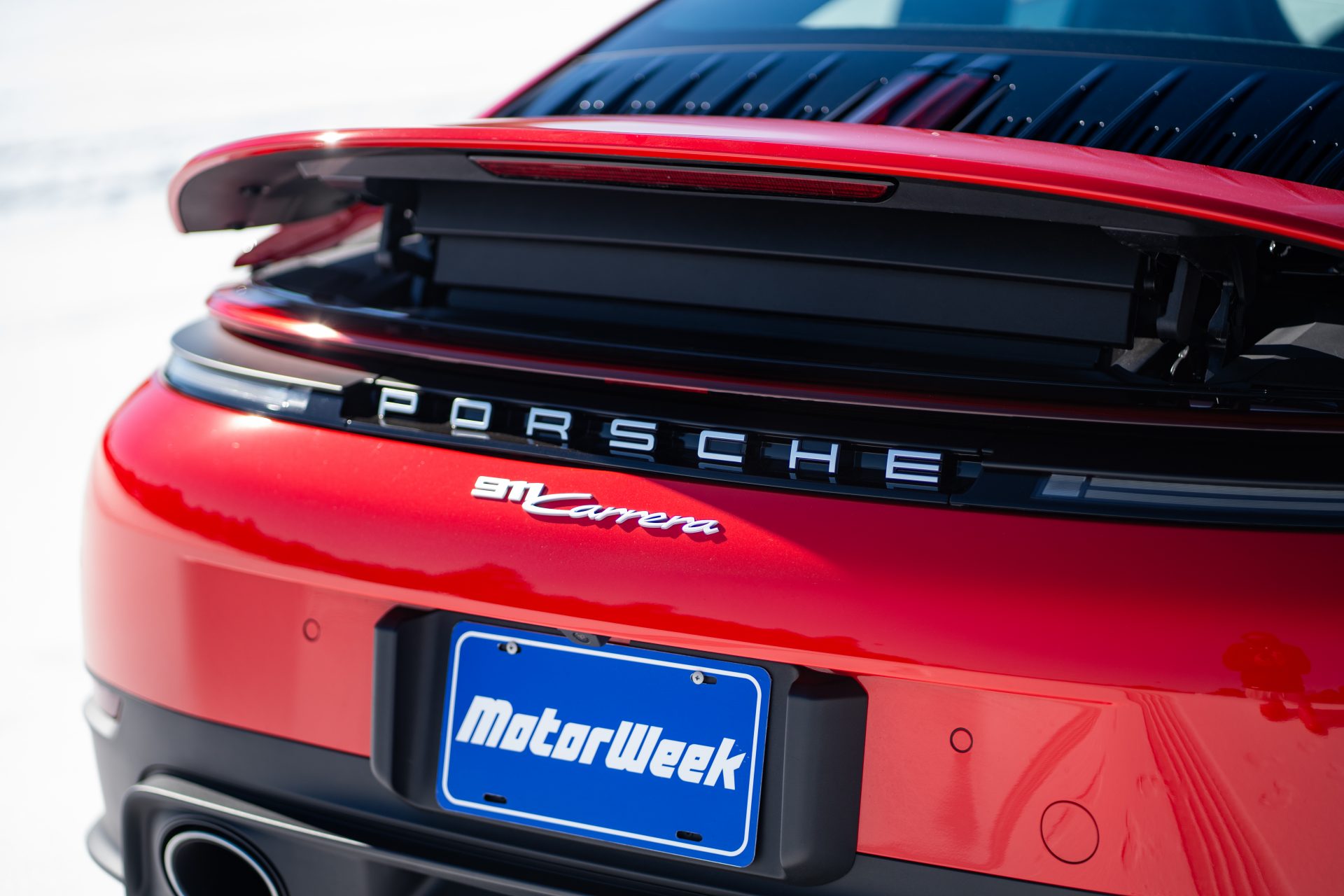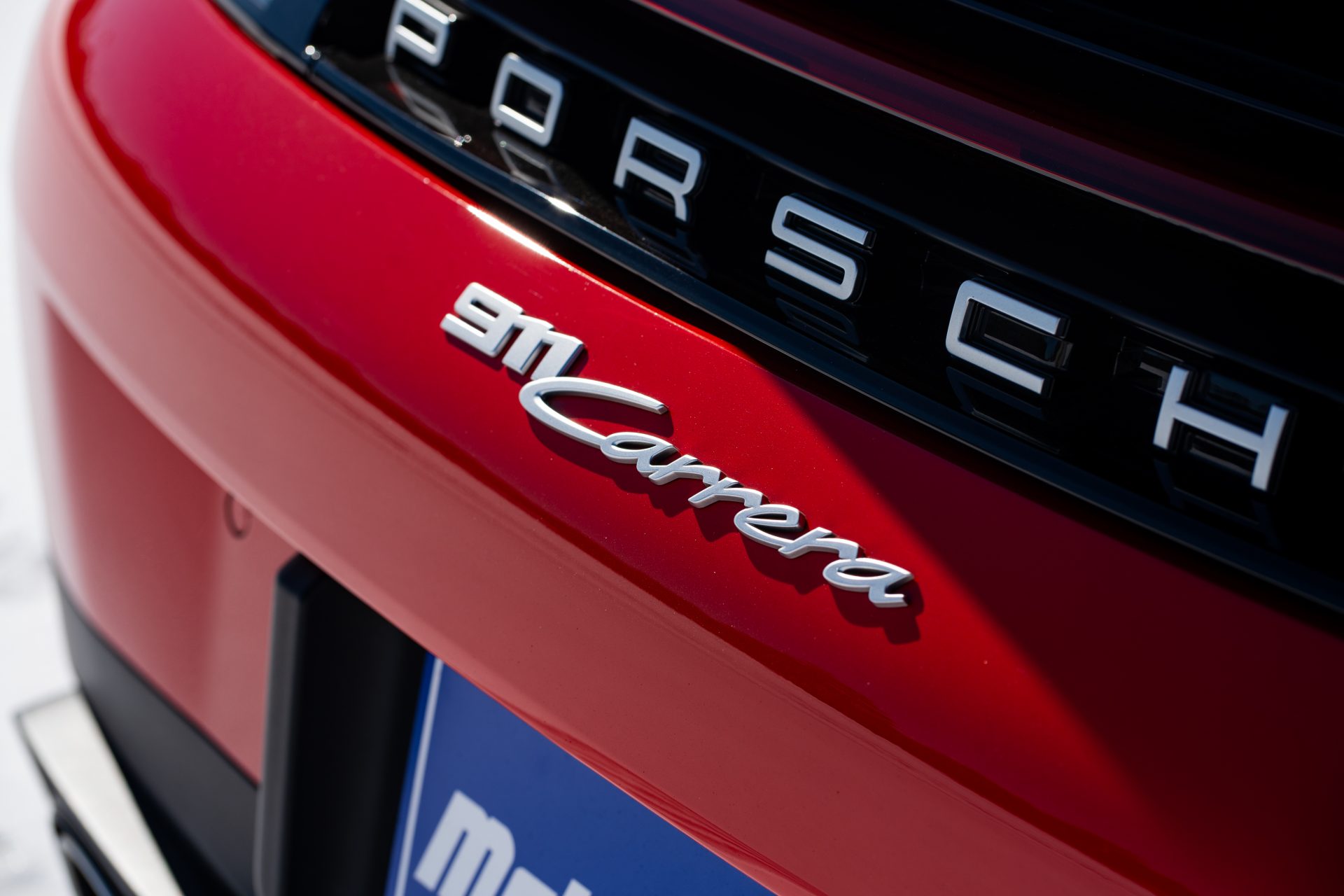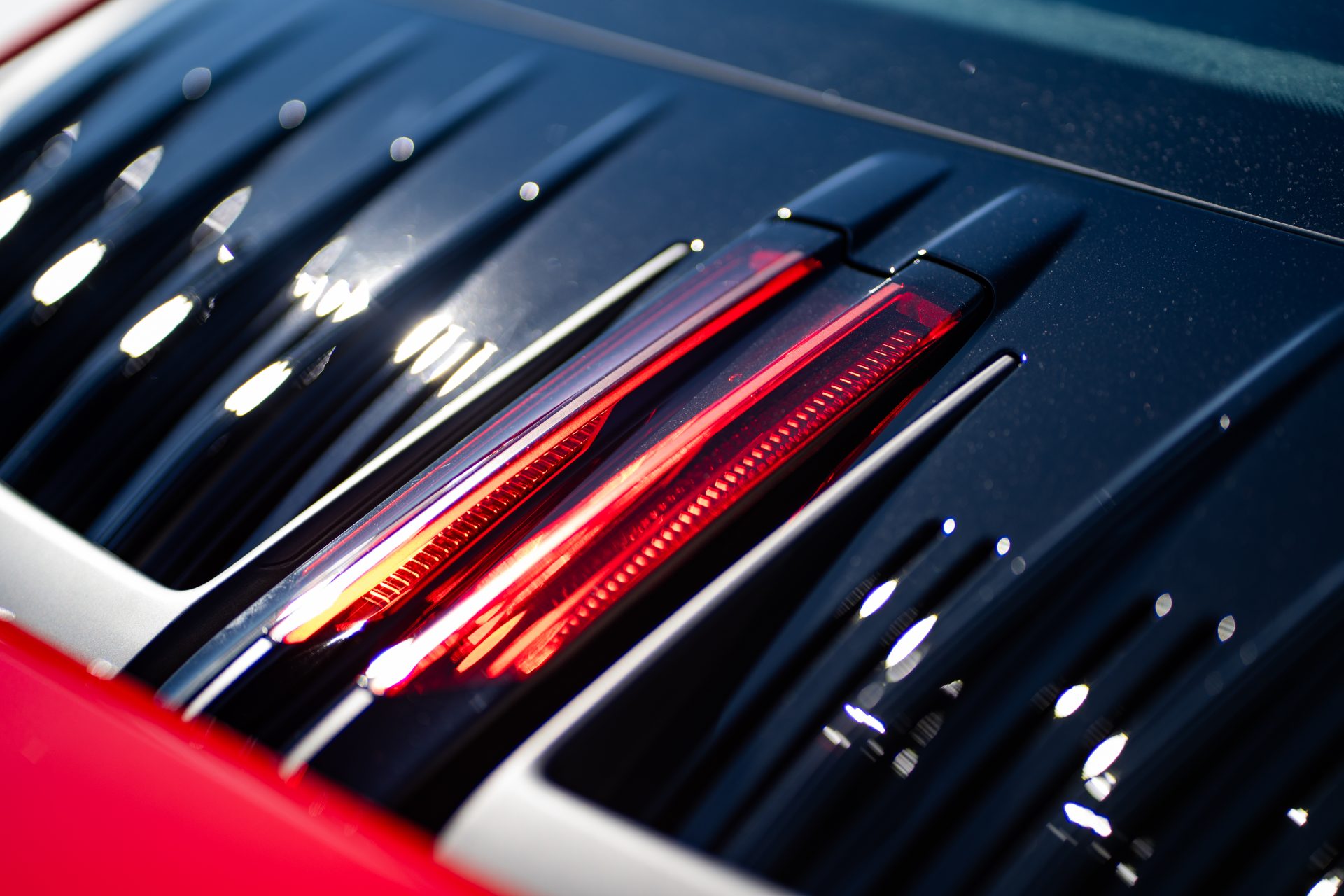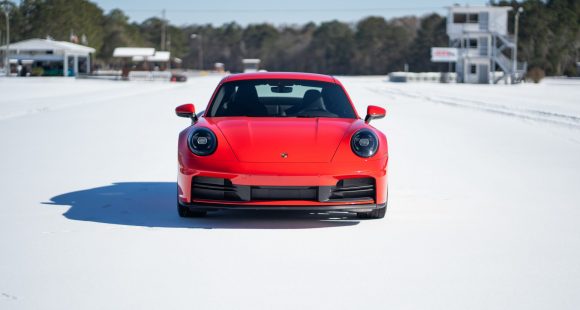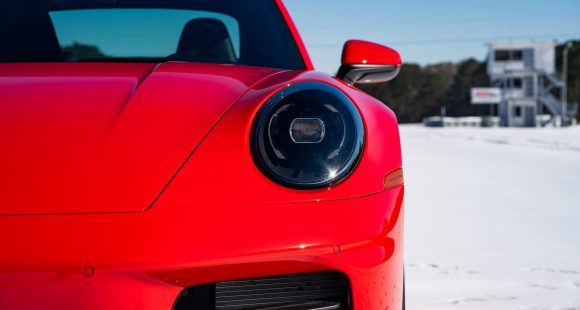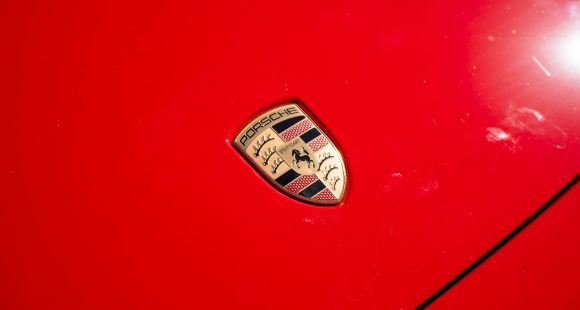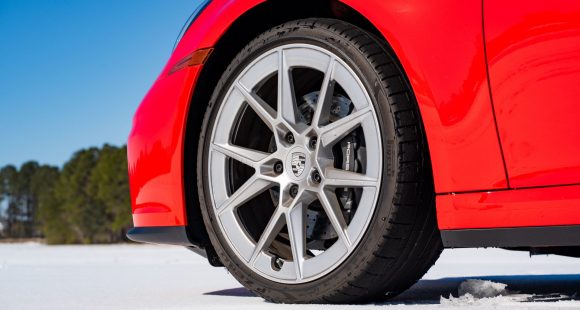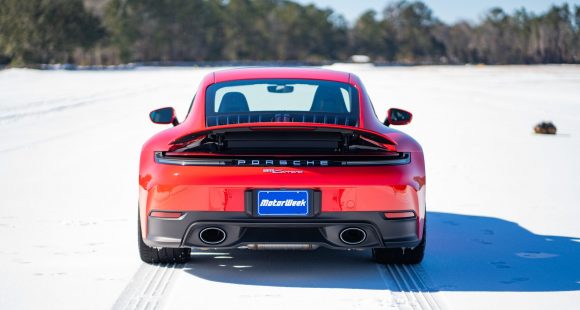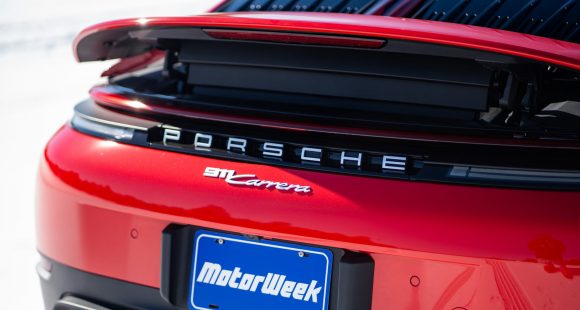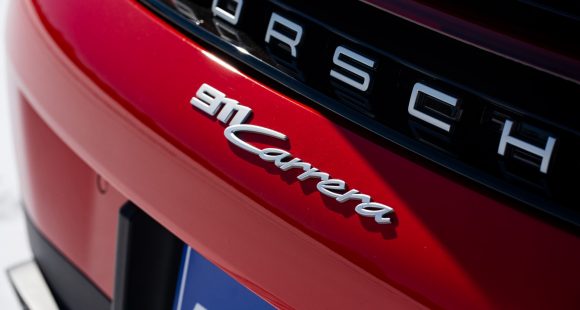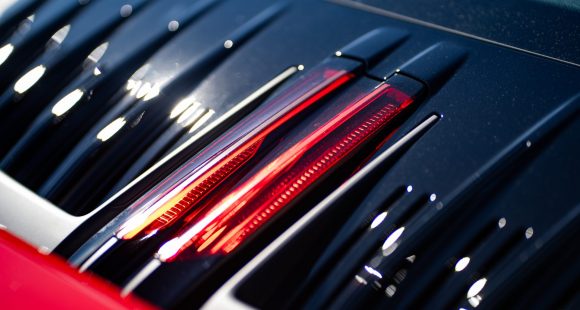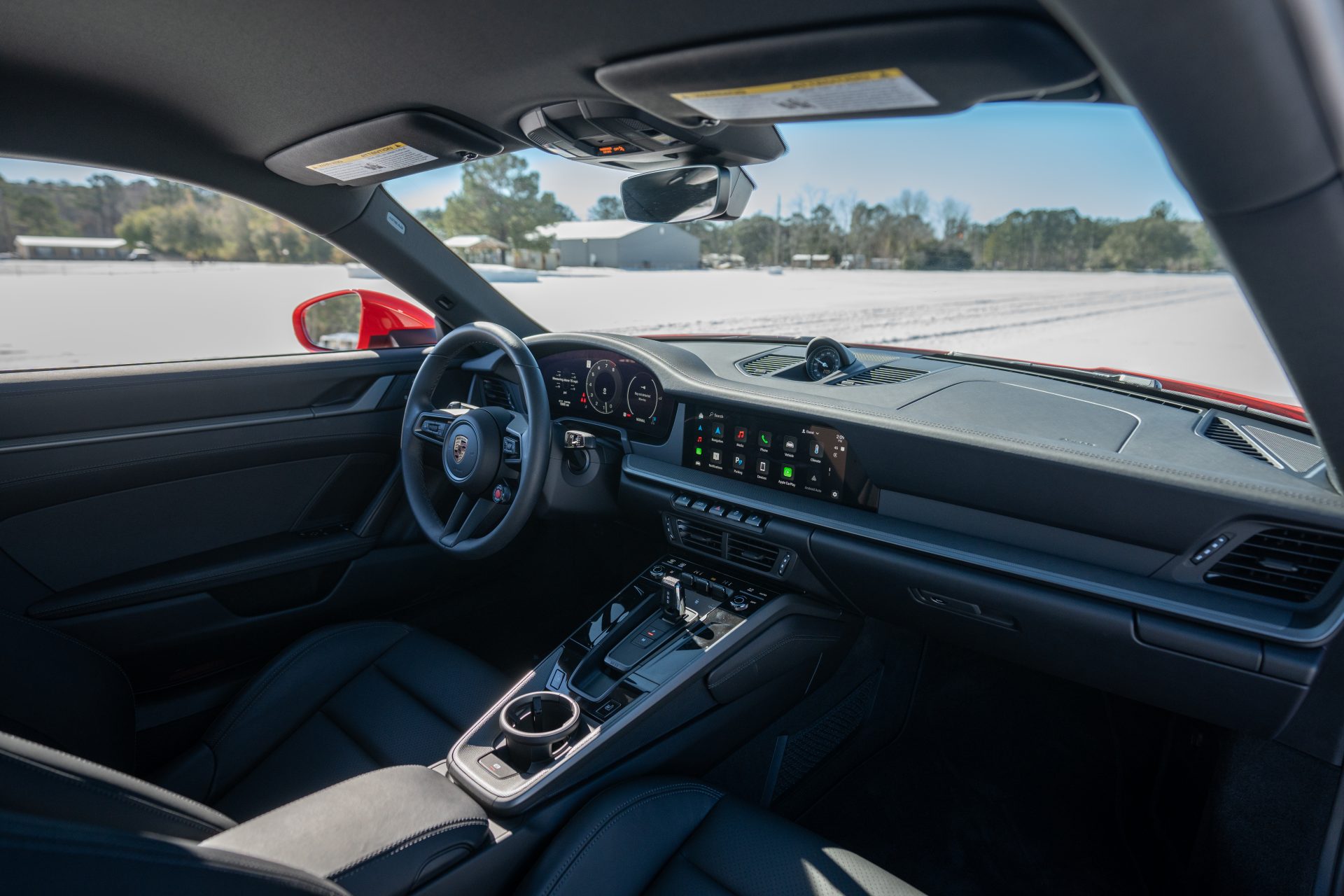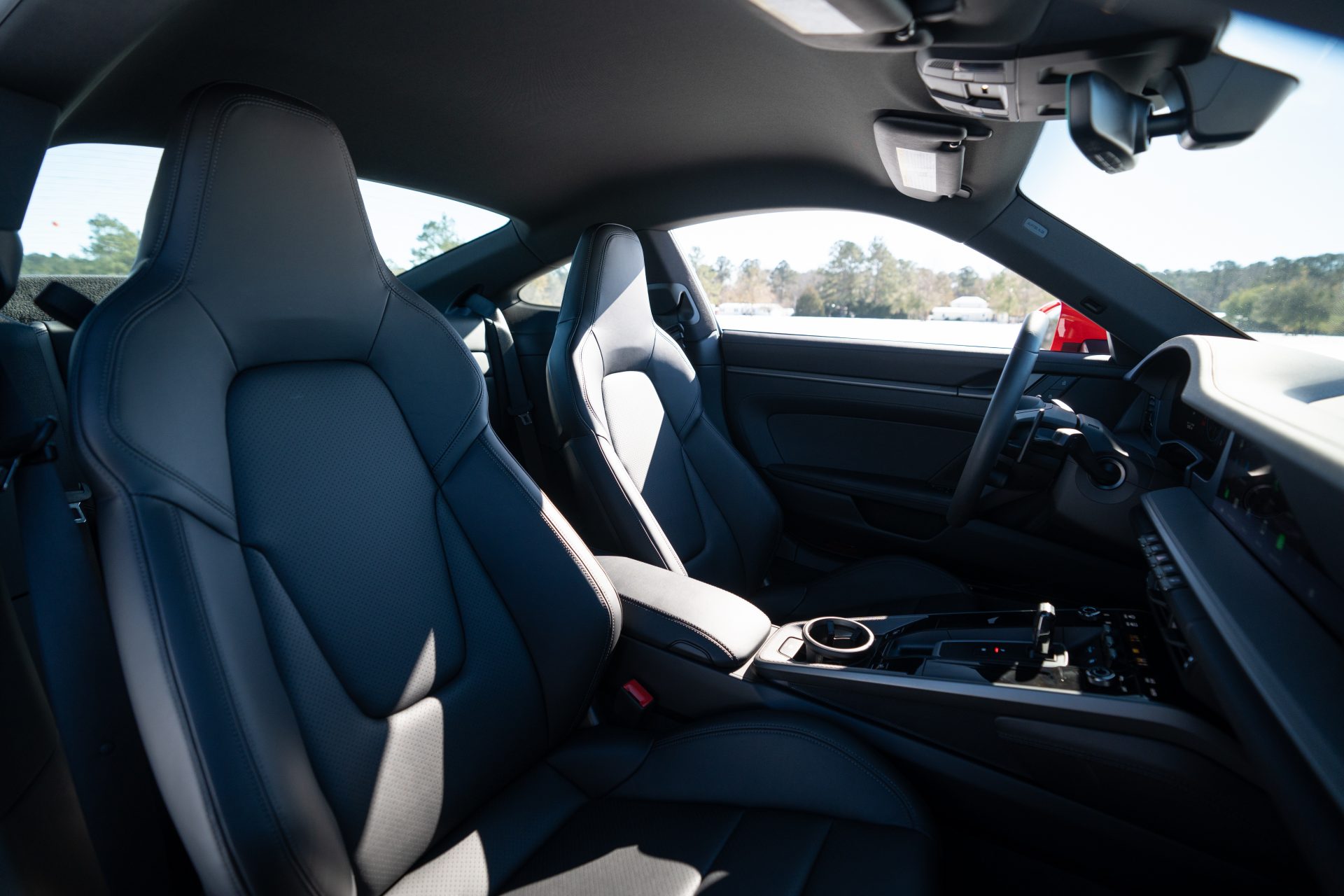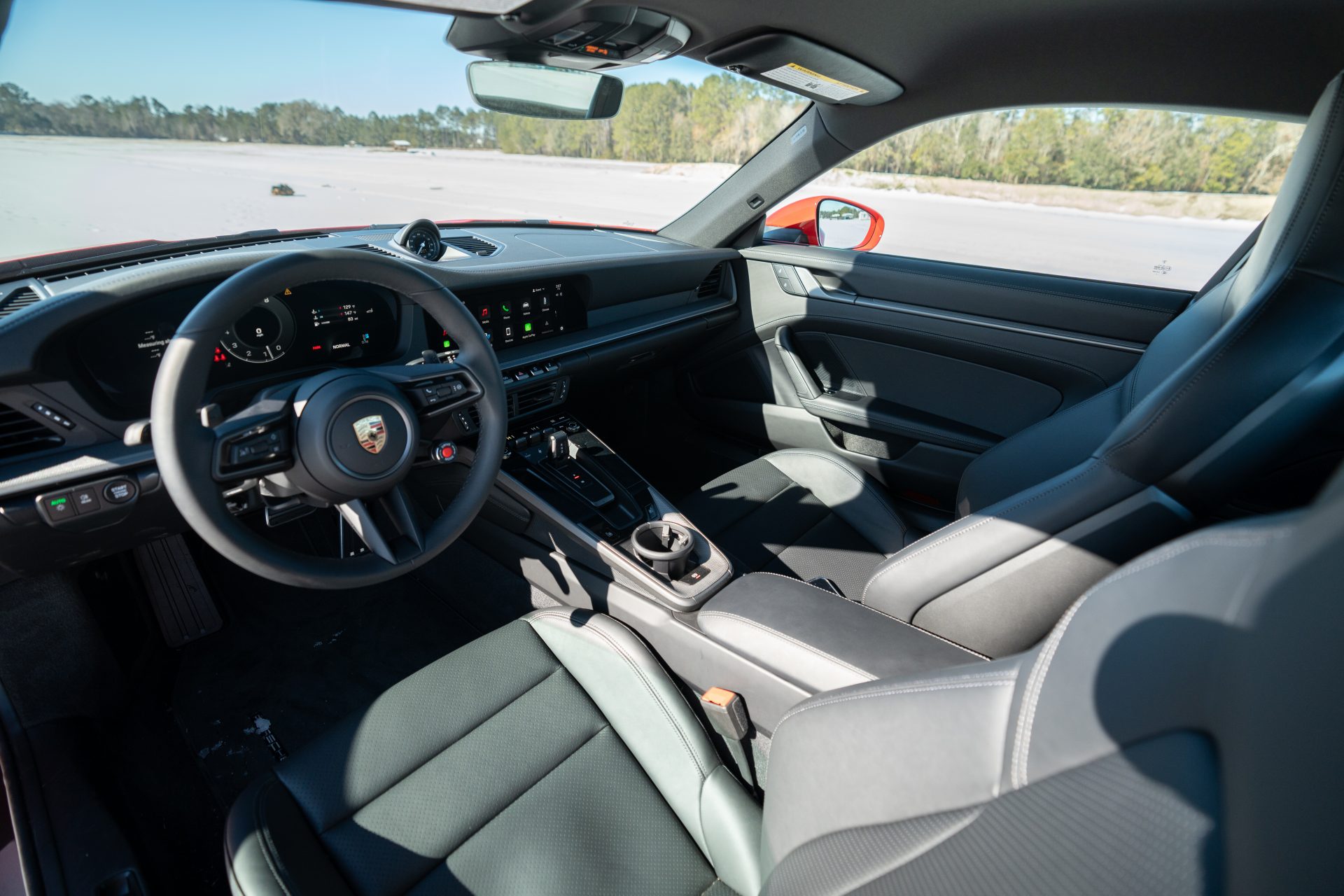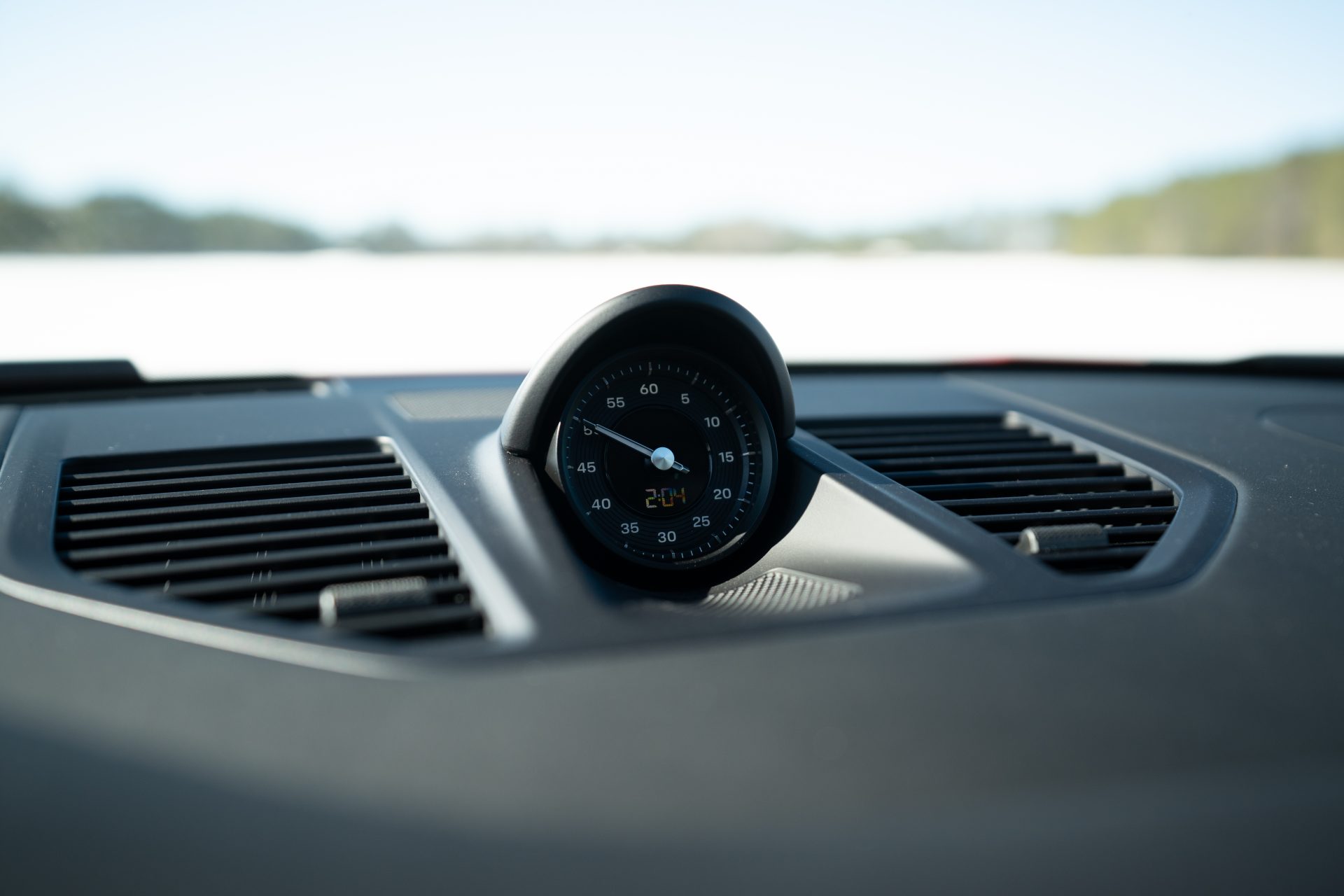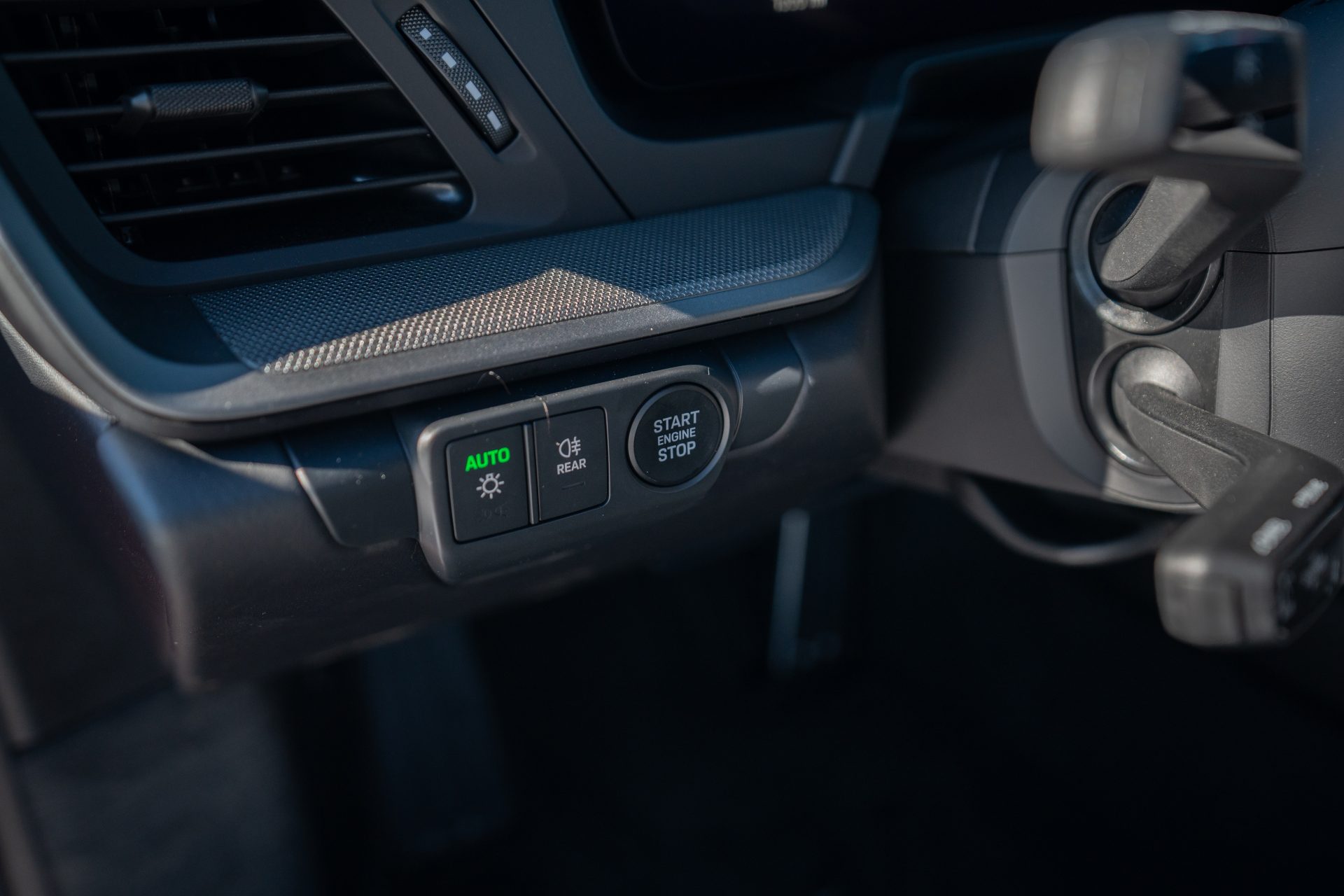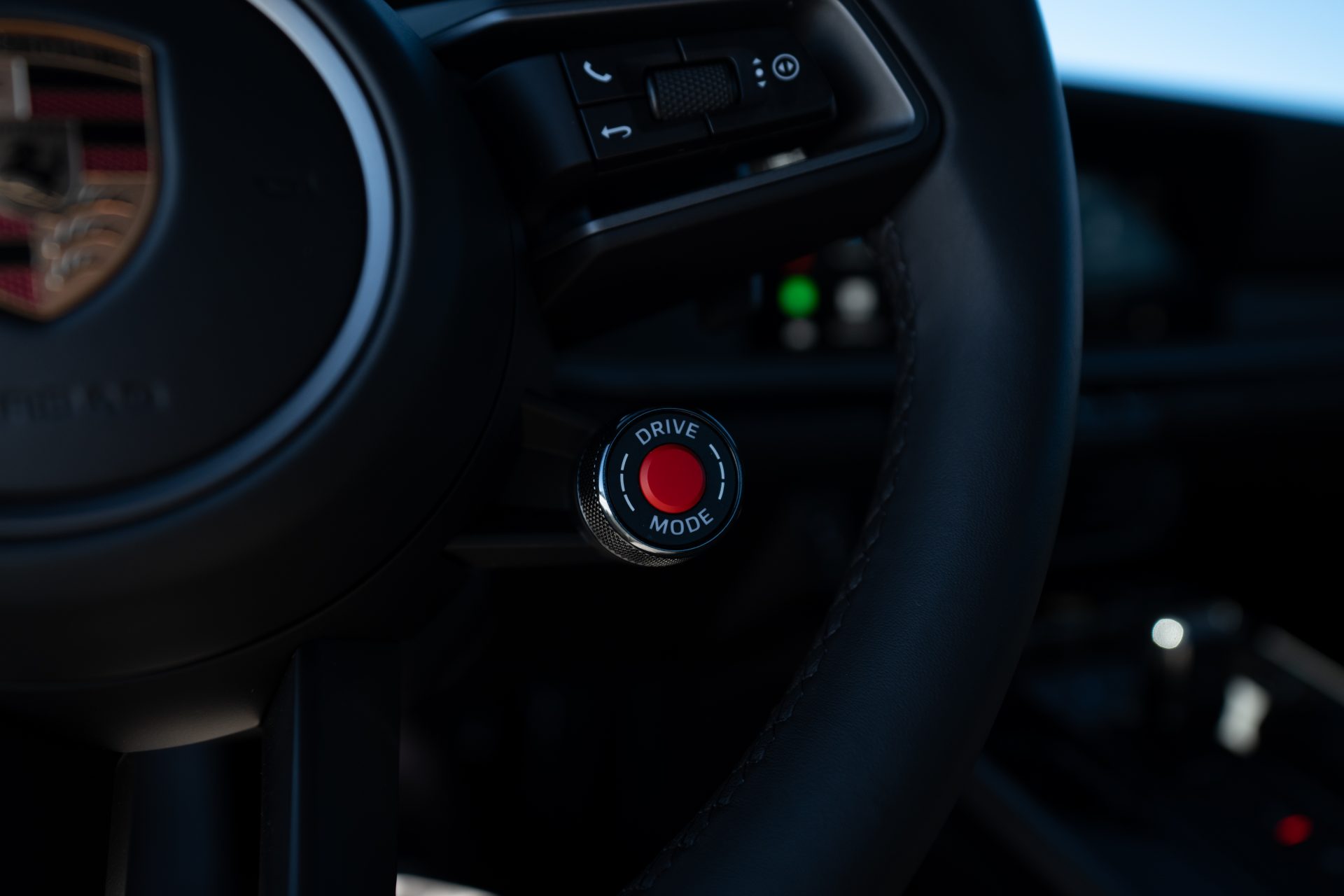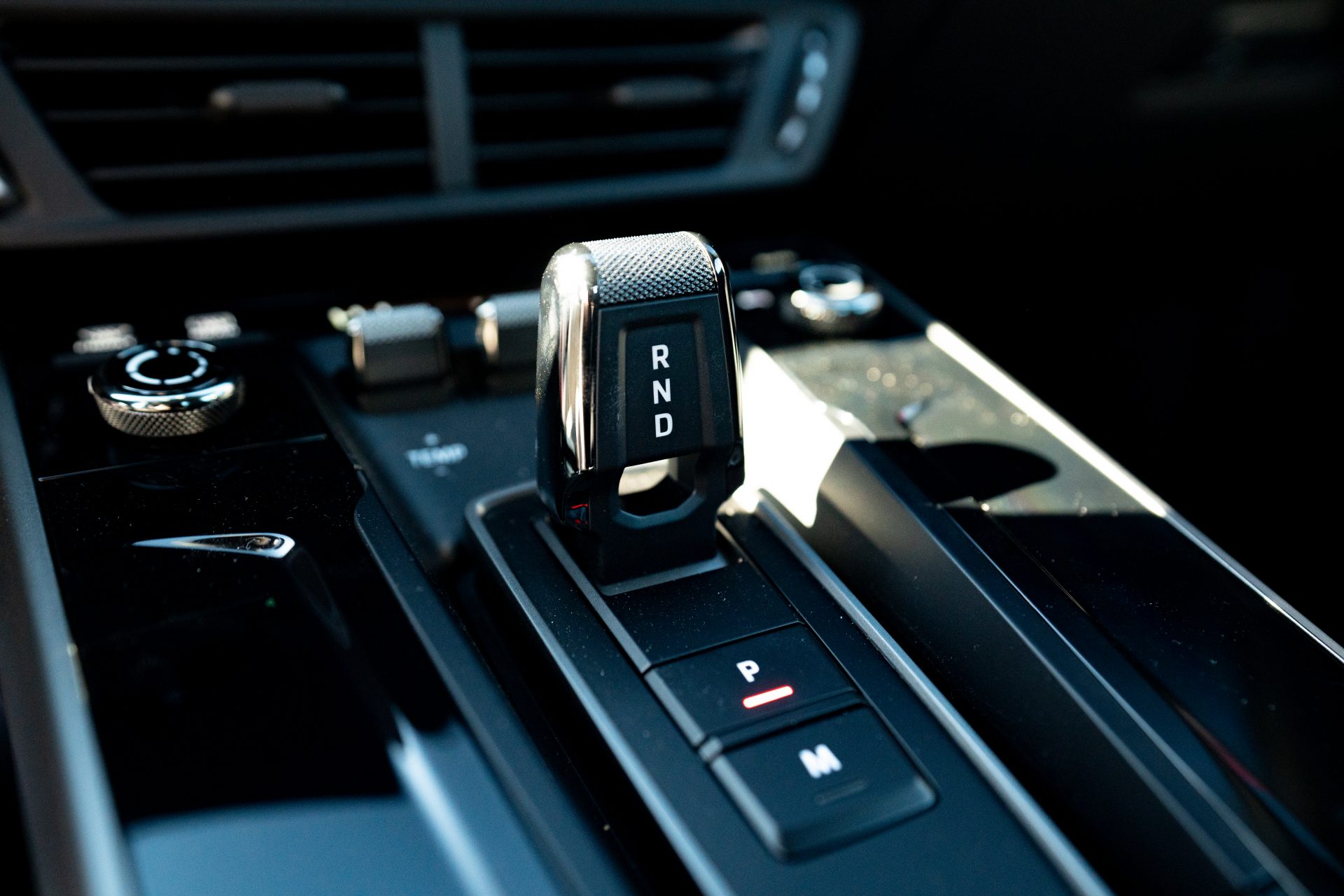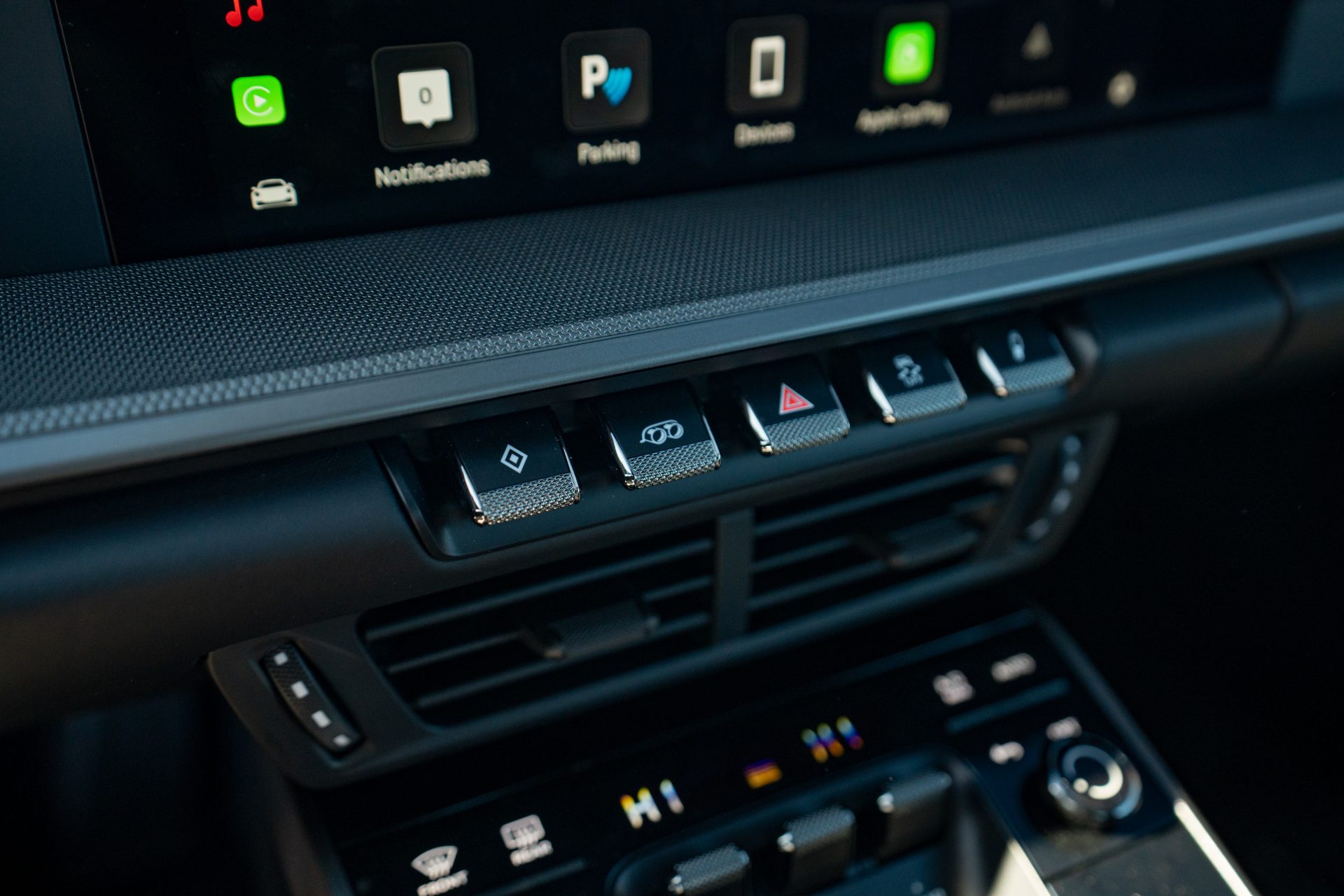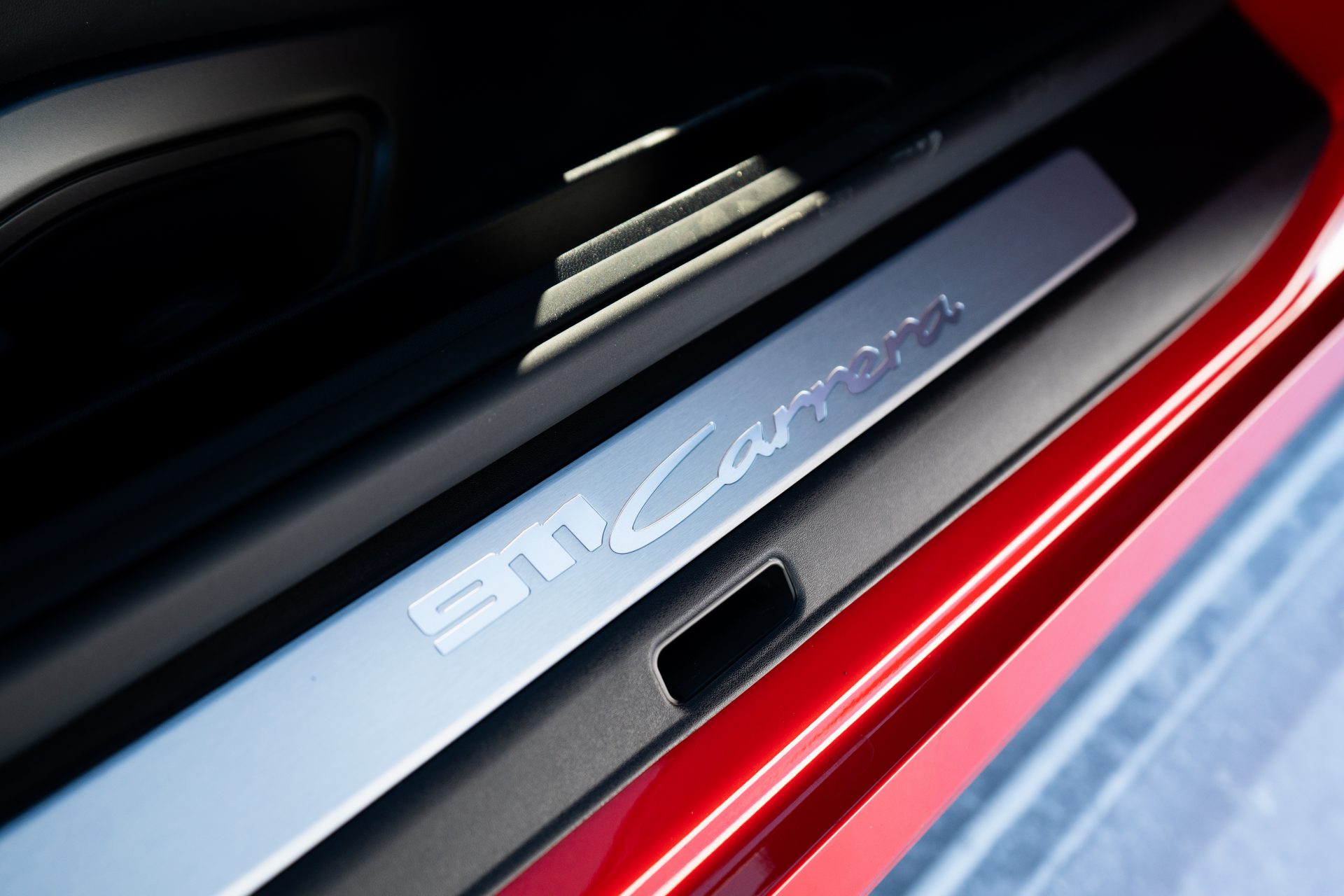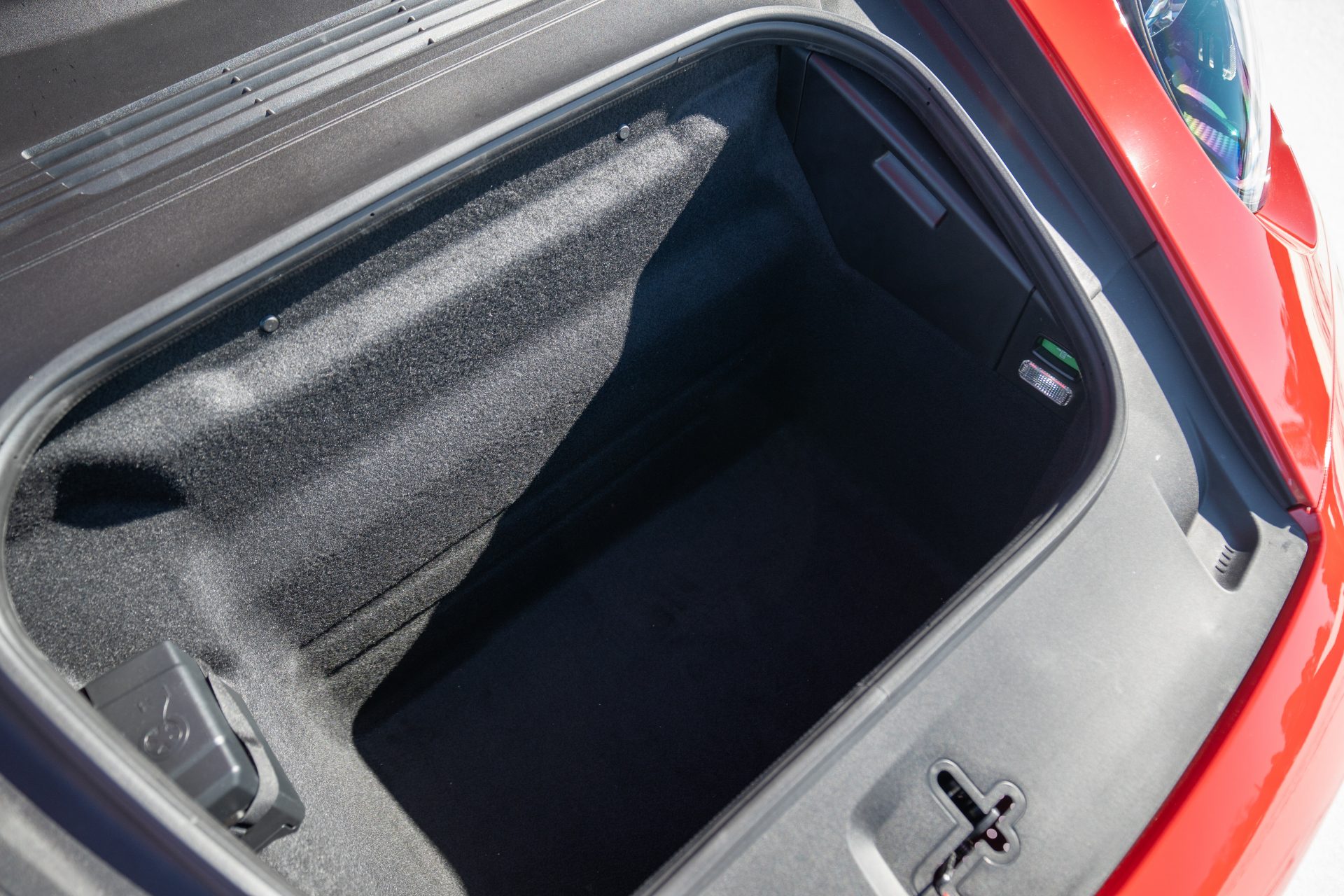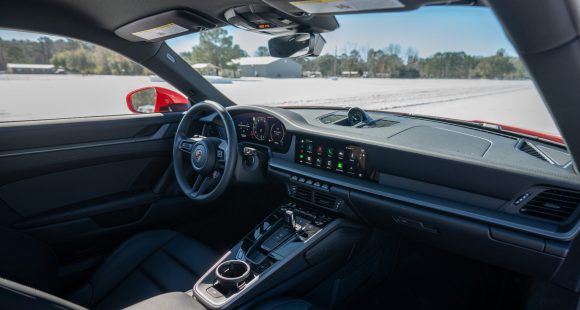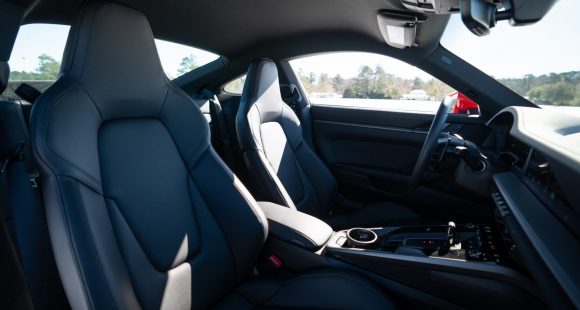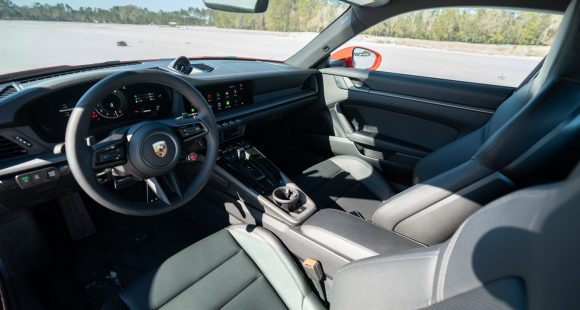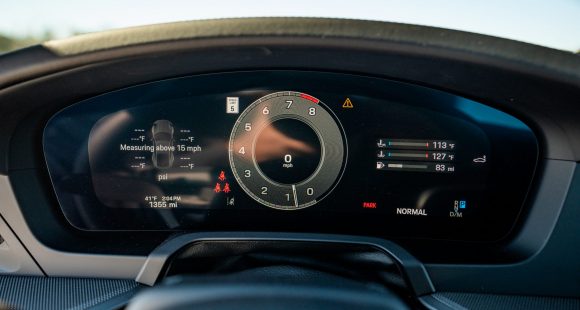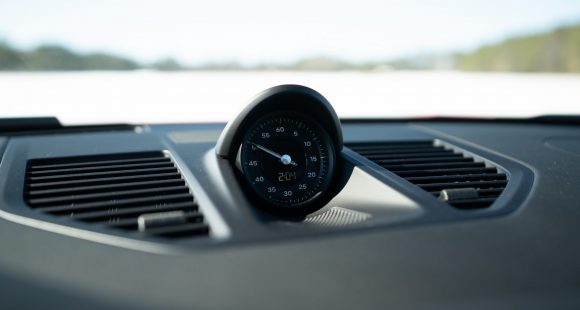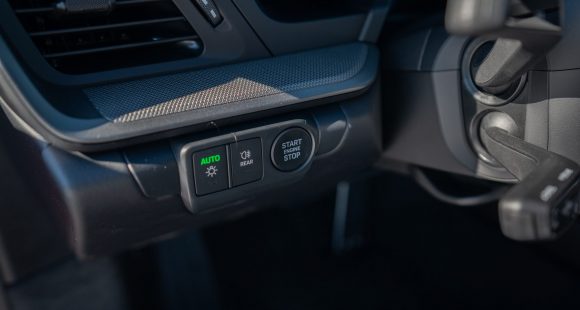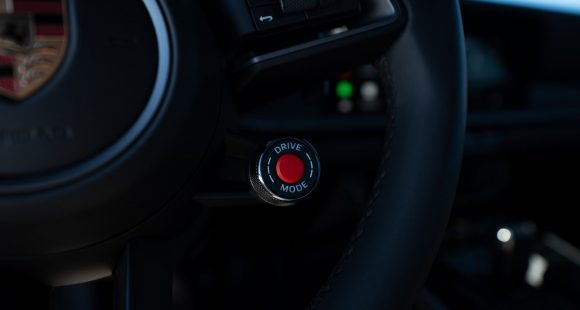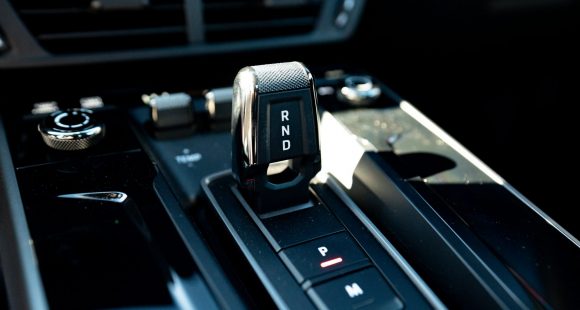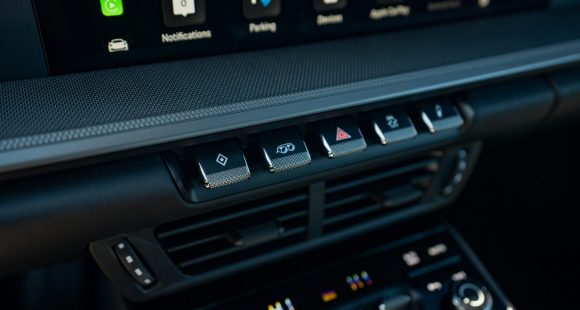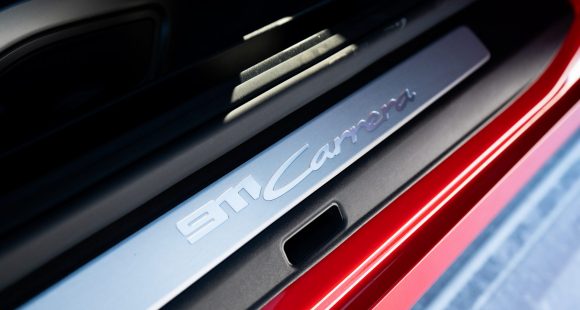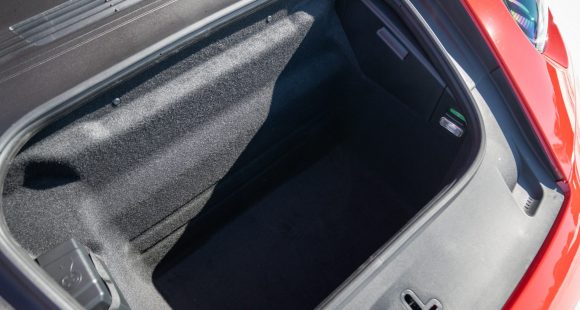2013 Hyundai Veloster Turbo
When Hyundai introduced the excitingly style Veloster last year, its unique four-door coupe design made other compact hatchbacks look suddenly boring. But sadly, the Veloster’s performance didn’t back up its sporty appearance. Well, Hyundai quickly made it their mission to find a proper solution; enter the Veloster Turbo. So, let’s see adding a turbo can boost our reactions to Hyundai’s hot looking, little hatch!
The 2013 Hyundai Veloster Turbo does indeed get some much needed extra power pumped into its great looking sheet-metal. Courtesy of a twin-scroll turbocharger mounted on its 1.6-liter, direct injection Gamma-4. Horsepower gets a nice boost from 138 to 201, and torque gets an equally impressive increase from 132 to 195 lb-ft. Compression ratio drops from 11.0:1 to a more forced induction-friendly 9.5:1. Sounds like it certainly has the potential to cure what ailed it, so we wasted little time hitting the track to find out.
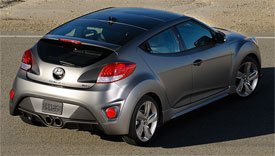 Off the line, there’s a fair amount of wheel hop as the front tires struggle for traction, but eventually enough is attained to get to 60 in 7.8 seconds, almost a second quicker than the normally aspirated Veloster. The quarter mile is equally quicker at 16.0-seconds at 87 miles-per-hour.
Off the line, there’s a fair amount of wheel hop as the front tires struggle for traction, but eventually enough is attained to get to 60 in 7.8 seconds, almost a second quicker than the normally aspirated Veloster. The quarter mile is equally quicker at 16.0-seconds at 87 miles-per-hour.
As before, both 6-speed manual and automatic are available; we chose the manual and we’re still not huge fans of the shifter, as you need to be very precise with it, but gears are well spaced and we love the more aggressive exhaust note that comes with the Turbo. It’s still not super fast, but without doubt a big improvement over the base Veloster and just enough to make it finally live up to its looks.
And speaking of looks, it’s hard not to love the funky styling of the Veloster; it truly appears “special” hauling down the road. And the Turbo gets some very well done visual upgrades that set it apart. But, not so much so that it look super boy racerish.
Up front there’s a larger hexagonal grille, and down the sides, rocker skirts are extended. 18-inch wheels with chrome inserts are standard. And of course the unique single right side 3rd door arrangement remains, though unfortunately so do the all too obviously fake hood “vents”. It looks most aggressive from the rear however, with the scooped out look accentuated by a body colored, hatch-top spoiler and dual, round center exhaust tips.
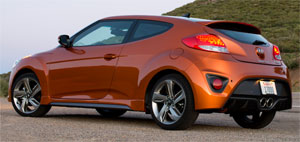 When it comes to handling, the turbo Veloster equates itself well enough. With no suspension changes, you still can’t push it too hard before it starts to push hard. But, a little finesse rewards you with flat cornering and more than enough power to exit with a smile.
When it comes to handling, the turbo Veloster equates itself well enough. With no suspension changes, you still can’t push it too hard before it starts to push hard. But, a little finesse rewards you with flat cornering and more than enough power to exit with a smile.
But, our biggest complaint on the base Veloster was the absolute lack of steering feel. So the Turbo adds a slightly faster ratio and sportier tuning to the electric assist to increase feedback and response. We had no complaints about braking performance before, nor do we now as stops from 60 averaged a very good 120-feet.
We still love the motorcycle inspired, well equipped interior of the Veloster and the Turbo gets a few updates, like leather seats with Turbo embroidery, alloy pedals, and unique gauges. Heated seats and push-button start are standard. The Ultimate Package adds panoramic sunroof, automatic headlights, back-up warning sensors, and Navigation with Back-up camera.
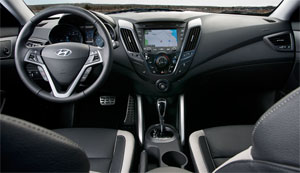 Even if you crawl through the right side 3rd door, you won’t find any more room in the cramped rear seats. But, fold them and the 15.5 cubic feet of cargo space expands to 34.7. Though you’ll have to lift bags pretty high to get them through the hatch.
Even if you crawl through the right side 3rd door, you won’t find any more room in the cramped rear seats. But, fold them and the 15.5 cubic feet of cargo space expands to 34.7. Though you’ll have to lift bags pretty high to get them through the hatch.
In case you haven’t heard, the government has some issues with Hyundai’s Fuel Economy Ratings. They’ve since been revised downward on many models, including the Veloster. The Turbo with manual now rates at 24-City, 35-Highway, and 28-Combined on Regular gas. We averaged a fine 32.9 miles-per-gallon in mixed driving. Making for an Energy Impact Score that’s still much better than average at 11.8-barrels of annual oil consumption with 5.3-tons of CO2 emissions.
Pricing gets a boost as well, to $22,725. That’s $4,500 over a base Veloster, but it comes almost fully loaded and is only about a grand over the very well-equipped Veloster we tested last year.
Adding boost to the 2013 Veloster may not be enough to blow the Turbo to the sharp end of the sporty hatchback segment, but Hyundai certainly made a fun little car even more so, giving it the additional performance it needed to back up its sporty mission. So we mean it when we say, “Mission Accomplished.”
Specifications
- Engine: 1.6-liter, direct injection Gamma-4
- Horsepower: 201
- Torque: 195 lb-ft.
- 0-60 mph: 7.8 seconds
- 1/4 mile: 16.0 seconds @ 87 mph
- EPA: 24 mpg city/ 35 mpg highway
- Energy Impact: 11.8 barrels of oil/yr
- CO2 Emissions: 5.3 tons/yr
2025 Porsche 911 Carrera
Ever Evolving 911 Reaches New Heights
The Porsche 911 has existed for 60 years now! Amazing! And, you could argue that major changes over all those years have been relatively few, as constant incremental improvement is more the way that Porsche does business. With that in mind, let’s hit the track in the latest 911 and see what constant improvement means for 2025.
We’ve driven so many 911s here at MotorWeek, each seemingly more special than the last, so it’s a bit refreshing to be ripping around Savannah’s Roebling Road Raceway in a 2025 Porsche 911 that’s about as close as you can get to base these days. And the fact that it’s just as fun as all those exclusive pieces says a lot about how far the 911 has come. Perhaps it also speaks to how much a base 911 will set you back today as well; more on that later.
For now, we’re just thinking about the next apex, holding steady throttle as we approach, and getting on it way sooner than you’d expect without upsetting anything, as the 911 rockets off the corner thanks to tremendous grip and a PDK trans that finds the perfect gear before we even gave it a thought. Even with very cold track temps, we never struggled for grip or battled any wheelspin coming off of corners. And trying to land it in that perfect spot in braking zones is easy with strong brake performance that was predictable and consistent lap after lap; no wandering, and great feedback too.
Yes, even the standard 911 is near pure perfection on a racetrack. It gives you all the right feedback, stays incredibly flat through corners, makes you always feel totally in control, and again is just plain fun. Unless you’re chasing lap times, there’s really no need to head further up the 911 tree. Though it is worth noting the few upgrades that were on our Carrera did help the situation a little. The 20- and 21-inch Carrera S wheels enabled plenty of grip from the 305 Pirelli P Zero tires, the Sport Chrono Package allows 0-60 sprints of 3.7 seconds, an extended range fuel tank meant we could lap all day without having to fill up, and the fantastic Sport Seats provided great support and better comfort than we remember experiencing in a 911. The Sport Exhaust system didn’t add anything to performance, but made things sound a whole lot better, and the oval silver tips look great too.
We never struggled for grip or battled any wheel spin coming off of corners.
Our track time got cut short thanks to a rare snowstorm in Coastal Georgia, but the white stuff and blue sky made the perfect backdrop for our Guards Red Carrera. Exterior tweaks for what is officially the 992.2 include a reshaped front fascia with improved aerodynamics. All front lighting is now contained within the Matrix Design LED headlight housing. The rear fascia has also been smoothed out, the license plate moved higher, and Porsche 3D block lettering spelled out across the back beneath the active rear spoiler and new decklid grille.
Even without Turbo in the name, the standard 911 engine is indeed a turbo these days, a 3.0-liter flat-six twin-turbo delivering 388 horsepower and 331 lb-ft strictly to the rear wheels in the Carrera Coupe.
Inside the cabin, the 911 continues its slow crawl towards the modern, now including a 12.6-inch fully digital gauge display and a start button located on the left side of the steering wheel, with drive modes easily accessible on the wheel itself. In another no brainer move, Porsche now makes the rear seat a no cost option, so you can choose if you want it or not.
Government Fuel Economy Ratings are 18 City, 25 Highway, and 21 Combined. That’s only slightly worse than average for the Energy Impact Score; 14.2 barrels of annual oil consumption with 7.0 tons of CO2 emissions.
The good news is this 911 had the fewest number of options of any Porsche that we’ve tested in some time, and it was still plenty awesome; the bad news is, a base Porsche 911 Carrera Coupe now starts at $122,095.
But can you really put value on “the force,” this mythical power that Porsche seems to have, that somehow turns average drivers into great ones? It’s useless to resist as far as we’re concerned, as it only gets better with the 2025 Porsche 911 Carrera.
Specifications
As Tested
- Engine: 3.0-liter twin-turbo flat-6
- Transmission: 8-speed PDK
- Horsepower: 388
- Torque: 331 lb-ft




